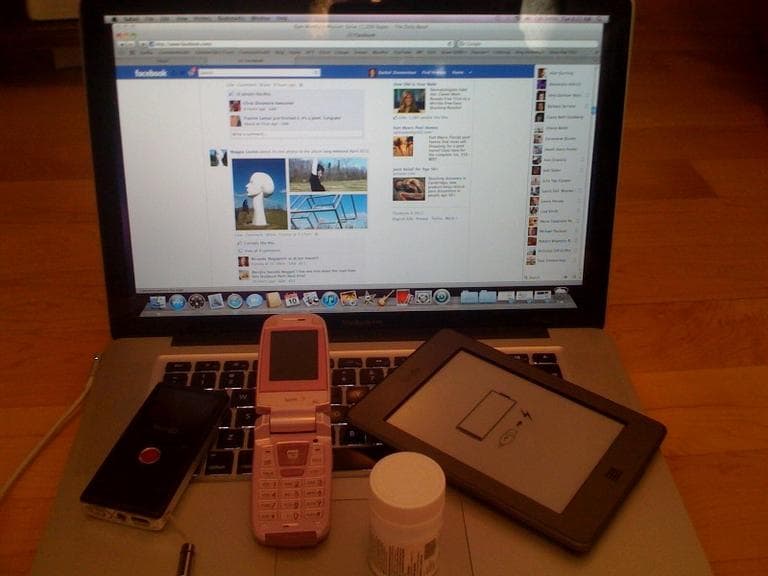Advertisement
Social Media Anxiety Disorder (SMAD): The Next New Medical Condition?

I had what might have been a symptom last month.
It happened the night I created a Pinterest account. Pinterest is not inherently scary. At least it shouldn't be. It's just one more thing. One more place where there are a lot of eyeballs — which of course I want directed at my stuff. One more place where I have to make new friends. One more place where I don't really know how to act or what to say.
I woke up that morning after signing up with Pinterest (and creating my first board) with my heart beating faster than usual. This is silly, I thought. If Pinterest is going to stress you out, I counseled my Inner Type A, just don't do it. No, no, said the ambitious one, this is where the women are, your target audience, you have to have a presence here. The voices battled and prattled on.
I put both feet on the floor next to my bed before I picked up my phone. I had vowed not to be one of those people who check their phone before they get out of bed. I would not get addicted to Twitter. I would make sure I was sitting up, with my feet out of bed before I slid one thumb to the Twitter, FB or email apps on my phone.
But I started to wonder that morning if I was getting a little out of control with the social media. A racing heart triggered by Pinterest doesn't sound normal. Could Social Media Anxiety Disorder (or Social Media Anxiety Syndrome) be the next illness we create?
I took the two obvious steps for anyone with a medical question: I went to Google and I asked my friends.
On Google I found:
1) A booklet that makes light of SMAD
2) The blog Internet Evolution writes a bit tongue-in-cheek about SNAD (Social Networking Anxiety Disorder - we'll have to agree on a common name at some point)
3) This guy breaks social media disorders into several categories.
3) Internet addiction is so well established that some parents (in Korea) send their kids to boot camps to break the obsession.
From my friends I heard a big stew of responses. Lots of people, myself included, love these sites, but social media triggers some level of anxiety for many of us:
1) A bubbly young woman says she gets depressed after five minutes on Facebook. The intimacy feels forced, fake and pretentious.
2) A reporter with a stack of awards next to her name feels inadequate anytime she's on Twitter and hates the pressure she feels to be witty or wise.
3) A man with a good job and a happy family says he's back in junior high, once again a wallflower on Twitter and Facebook, waiting for someone to invite him in.
4) A teenager admits she cries sometimes on the days when no one accepts her FB friend requests.
5) A woman who was maligned online now checks FB and Pinterest obsessively to find out what people are saying about her.
6) A colleague who is supposed to be writing a book yells at herself for not making progress because she gets stuck on Twitter.
Finally, I called an expert.
Stefan Hofmann directs the Social Anxiety Program at Boston University's Center for Anxiety and Related Disorders. He says pressure to read and respond on Facebook and Twitter is the main source of stress for older people who use the sites. For younger people the stress comes from increased peer pressure as friends share personal information online.
Hofmann does not see this anxiety as a clinical condition, yet, but he wouldn't be surprised if it turned into one. He points to a half dozen journals launched in the last four of five years where researchers are looking at the effects of computers and cyberspace on human behavior. (Hofmann has an article, "Why do People Use Facebook?" published last summer in the journal, Personality and Individual Differences).
Some of you reading this will say...well for crying out loud, just shut the damn Twitter (or whatever) off. That's fine if you don't have a boss who's telling you to use it or a career that depends on building your online brand. For those of you who are suffering, we may find an app that will fix your symptoms (thanks @sree for the tip).
http://www.youtube.com/watch?v=L4U0dG9NKWA
And, I imagine Pharma will come to the rescue, if, one day, doctors conclude there is such a thing as SMAD.
This program aired on April 10, 2012. The audio for this program is not available.
